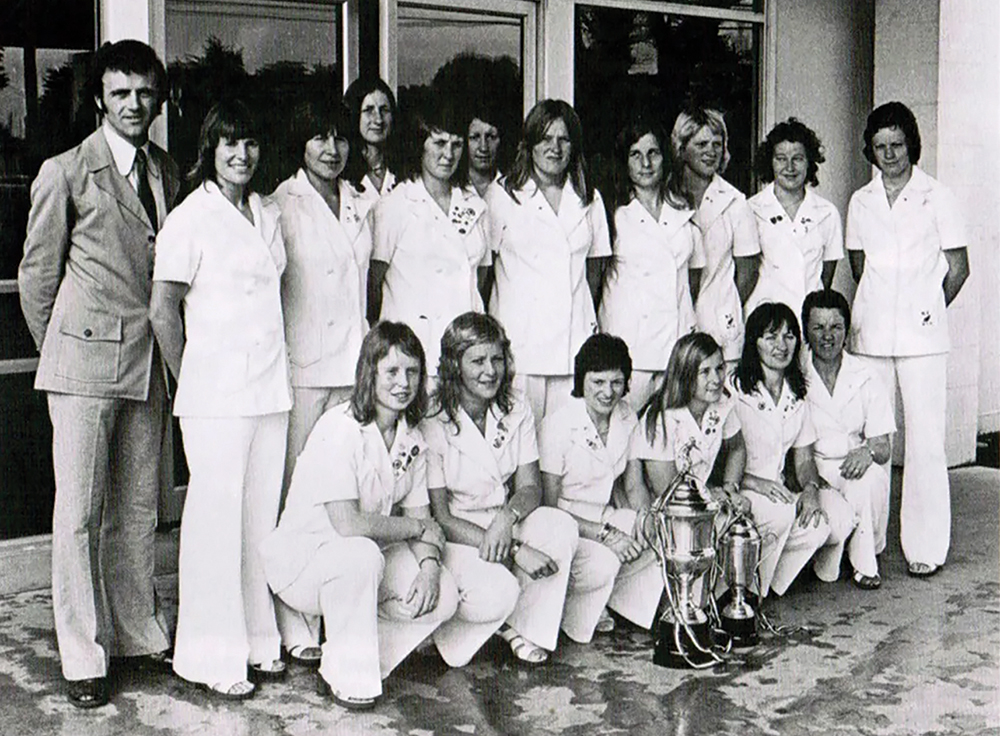The class of 1975 demonstrated, anything is possible when you pull on the silver fern.
When the New Zealand’s women’s football team competed in their first major international tournament, they played in borrowed uniforms. The squad faced four matches in 10 days and had to raise the equivalent of $1000 each to cover the costs of travelling to Hong Kong, which they did by running car washes, selling raffle tickets in pubs (one of the prizes was a pig in a barrow) and completing a 30-hour ‘soccerathon’ at Auckland’s YMCA.
All of their players were amateur, fitting in training around work and family commitments, while they travelled with minimal support staff.
“You’d never believe this, but we went with a coach and a manager – that was it,” former captain Barbara Cox told me last year. “No physio, no doctor, no assistant coach. We had to look after ourselves.”
And, against considerable odds, they won the tournament, lifting the 1975 Asian Cup to become regional champions.
The courage, commitment and dedication of those female pioneers is legendary and that will hopefully provide inspiration for the Football Ferns, ahead of the upcoming 2023 Fifa Women’s World Cup in New Zealand and Australia.
Sure, times have changed and the sport has grown beyond all recognition, accompanied by a heavy emphasis on tactics, analysis and sports science, with levels of detail that didn’t exist a few decades ago. But the basic tenets of team success remain the same; unity – on and off the pitch, individual and collective belief, having the right game plan and executing it well and the ability to perform under immense pressure.

That’s what the Ferns need to discover across the rest of their build-up, and in the three group games against Norway (July 20, Auckland), Philippines (July 25, Wellington) and Switzerland (July 30, Dunedin). Nobody expects them to win the 32-nation tournament, or even go close, because the competitiveness of football is not comparable to cricket, rugby or netball. They will be underdogs, but most Kiwis hope the team play to their potential and leave no stone unturned.
That’s what happened in 1975. Back then the team had never played together but gelled superbly. They were tough and resolute, beating Hong Kong and Malaysia in the group stage before toppling Australia 3-2 in the semi-final. Thailand were heavy favourites in the final – they had been training together for months – but New Zealand prevailed 3-1.
As they did a victory lap, the Ferns were pelted with fruit and drink bottles from angry fans who had backed the opposition at local bookmakers, and they required a police escort to get to their bus. The team arrived home to a huge welcome, labelled the ‘Soccer Cinderellas’ in one newspaper article, among extensive media coverage.
Almost 50 years on, New Zealand football desperately needs a new generation of female heroes. This tournament, which will attract nearly two billion global television viewers, will put them in the spotlight like never before, especially in the opening game at Eden Park. Dealing with that level of expectation and focus is a huge challenge but the rewards are huge, if they can seize the moment.
The greatest pressure will be on coach Jitka Klimkova. The former Czech international was given a six-year contract in August 2021 but hasn’t delivered on that mandate. The team has only won three of 23 matches in her tenure, conceding 47 goals and scoring just eleven. But that shaky build-up will be completely forgotten in July, if the Ferns can win a World Cup match for the first time and progress to the knockout rounds. It seems like a tall order but as the class of 1975 demonstrated, anything is possible when you pull on the silver fern.
Michael Burgess – Sports Writer

